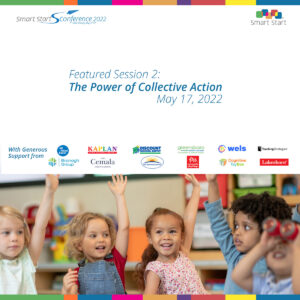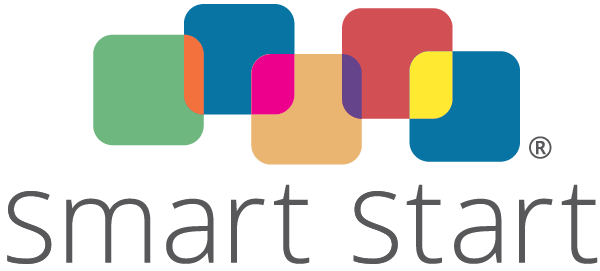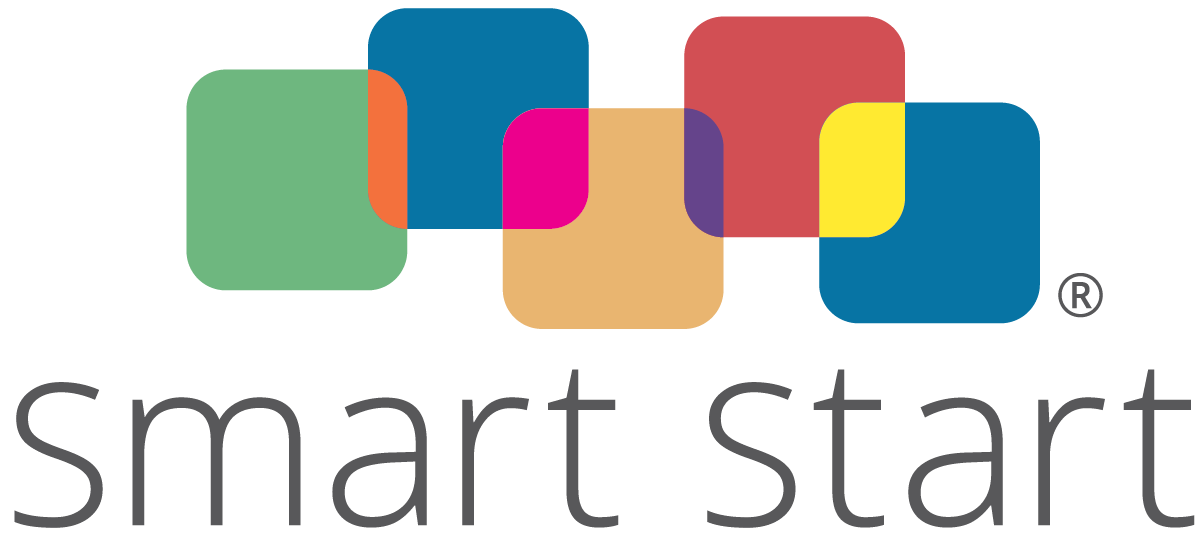Smart Start Conference Spotlight: The Power of Collective Action
“We need to center children and families in how we approach this work and think about them as holistic people…human beings who need a whole range of services. That’s why states, localities, and collective action are so critical because no one organization can meet these needs,” Kent Mitchell, Senior Director of State Affairs with the National Head Start Association.
 Early childhood advocates and key community stakeholders gathered in May for the second featured session of the 2022 Smart Start Conference.
Early childhood advocates and key community stakeholders gathered in May for the second featured session of the 2022 Smart Start Conference.
The session, The Power of Collective Action, featured a panel of early childhood subject matter experts and showcased their efforts in mobilizing communities through strategic collaborations and relationship building to expand opportunities for early childhood education.
Moderated by Kent Mitchell with the National Head Start Association, the panel included Rachal Hatton-Moore and Georgia Mjartan from SC First Steps and SC Early Childhood Advisory Council, Cicely Fleming from Illinois Network of Child Care, Sessy Nyman from Illinois Early Childhood Transformation Team, Charmaine Caccioppi from United Way of Southeast Louisiana, Candace Webber from Louisiana Policy Institute for Children, and Nicholy Johnson and Jacqueline Adam from The Commit Partnership.
Unprecedented Times call for Unique Approaches
The early childhood education industry has borne the brunt of society’s economic hardships for the last few years. From a lack of child care options for working families to a lack of quality programs available due to burnout and pay inequities, local early childhood education organizations have had to think outside of the box and look across their networks to expand access and opportunity for our nation’s most precious population.
While there is some empirical work being done to share best practices on collective action, panelists were able to share in real-time the work their organizations are implementing to coordinate services through strategic partnerships.
Critical Coordinators of Segmented Services
For The Commit Partnership in Dallas, Texas, addressing the wage gap begins with early childhood education. The Commit Partnership aims to be a community navigator and connector, working to ensure that all Dallas-Fort Worth students receive an excellent and equitable education.
To bring this vision to life, key partnerships and collaborations have been critical. Aligning with the Dallas County early childhood community, as well as school districts in the area for a Pre-K campaign, eligible Pre-K enrollment has increased by 10% as compared to 3% across the state. This increase was established by 16 school districts creating a common Pre-K enrollment date and districts jointly contributing funding towards promoting enrollment.
Nicholy Johnson, Manager of Early Matters at The Commit Partnership stated, “Living wage attainment starts with a great foundation in Pre-K enrollment, and that sets children up for success all throughout their school experience.”
In a true show of the power of collective action , the need for a new early childhood education and care system prompted the State of Illinois to launch Birth to Five Illinois with the goal of creating Birth to Five Action Councils and Family Councils in each of 39 regions. This new system structure is built upon the Illinois State Board of Education (ISBE) Regional Offices of Education (ROE) statewide structure but will operate independently.
Cicely Fleming and Sessy Nyman from the Illinois Network of Child Care and the Illinois Early Childhood Transformation Team detailed that the Birth to Five Action Councils will include parents and families, service providers, educators, and advocates who will be tasked with identifying service needs in each region. Information gathered by these Councils will be provided to the State in hopes of informing policy around birth-to-five programs over the next decade, and beyond. In addition, plans include having the Birth to Five Councils serve as regional advocacy bodies to influence local policy, including funding opportunities.
This new streamlined system will allow for more authentic family engagement, prioritizing racial equity and priority populations, as well as a means to build local capacity and coordinate efforts to support efficiencies and achieve greater impact for the children and families of Illinois.
The South Carolina Early Childhood Advisory Council employs the power of collective action through its First Five SC program. By transforming the way families access publicly funded early childhood programs and services in the state, a single, online application provides access and eligibility information to more than 40 services in just a few minutes.
Rachal Hatton-Moore and Georgia Mjartan noted that by engaging South Carolina parents and parents as active partners in the state’s early childhood education system, families can better understand their options and choose services that best meet their needs.
Similarly in Louisiana, early childhood advocates from the United Way of Southeast Louisiana, the Louisiana Policy Institute for Children, and the Jefferson Chamber of Commerce recognized that plans around recovery and revitalizing the economy would not be possible without collective action and the inclusion of quality early childhood education programs.
This led to the formation of the Ready Louisiana Coalition, whose mission is to mobilize business leaders, advocates, and other organizations to increase investment in high-quality early child care and childhood education.
According to Charmaine Caccioppi, bringing early care and education into the mainstream of all conversations with legislators to ensure it was a priority issue was critical to ensuring access to high-quality child care programs.
The Ready Louisiana Coalition now has over 100 businesses, chambers, civic organizations, and advocacy groups seeking sufficient state investment in quality, affordable early care and education in Louisiana. In 2019 the coalition helped to secure the first new state investment in early care and education in over a decade ($18.8 million).
 Opportunities for Growth
Opportunities for Growth
Although mobilizing stakeholders and partners to expand access and opportunity for early childhood education can be daunting, the positive outcomes that materialize as a result of collective action can have lasting impacts on communities.
While each organization featured may have a different approach to building relationships to strengthen early childhood education opportunities in their states, the underlying theme for them all is rooted in collaborative effort and collective action.


